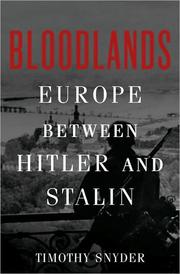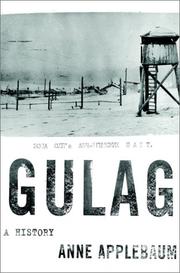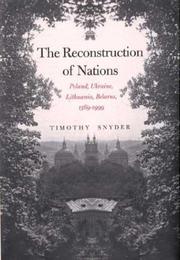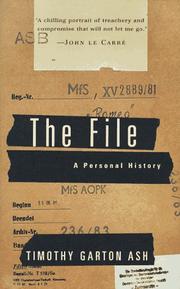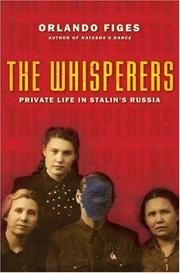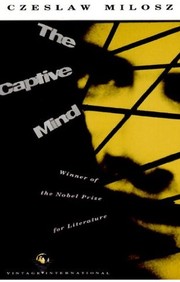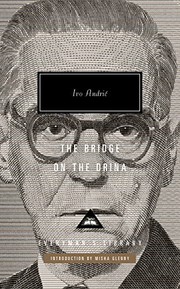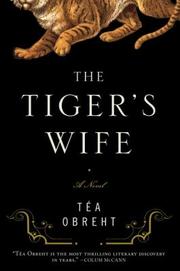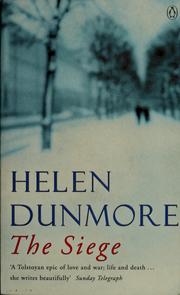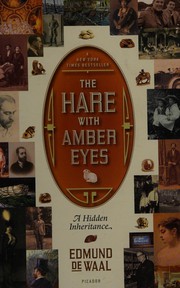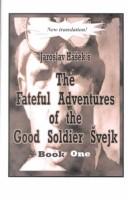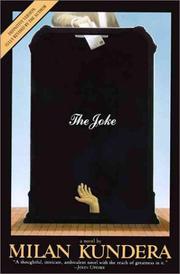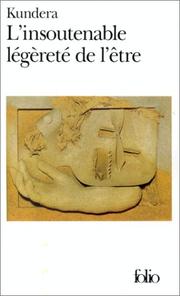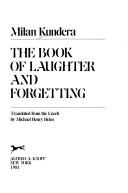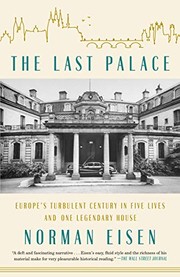If you’re looking to immerse yourself in the rich history, culture, and politics of Eastern Europe, look no further than these 20 best books on Eastern Europe. Whether you’re interested in fiction, non-fiction, or memoirs, these books offer a diverse and compelling look at the region. From the fall of the Soviet Union to the struggles of modern-day Eastern Europe, these books will transport you to another time and place. Get ready to expand your understanding of Eastern Europe with these captivating reads.
Contents
- 1 20 Best Books About Eastern Europe
- 2 Bloodlands: Europe Between Hitler and Stalin
- 3 Gulag: A History
- 4 Iron Curtain: The Crushing of Eastern Europe 1944-1956
- 5 The Reconstruction of Nations: Poland, Ukraine, Lithuania, Belarus, 1569-1999
- 6 The File: A Personal History
- 7 The Whisperers: Private Life in Stalin’s Russia
- 8 The Captive Mind
- 9 The Bridge on the Drina
- 10 The Tiger’s Wife
- 11 The Siege
- 12 The Hare with Amber Eyes: A Hidden Inheritance
- 13 The Good Soldier Švejk
- 14 The Joke
- 15 The Unbearable Lightness of Being
- 16 The Book of Laughter and Forgetting
- 17 The Street of Crocodiles
- 18 The Last Palace: Europe’s Turbulent Century in Five Lives and One Legendary House
- 19 The Unwomanly Face of War
- 20 The Master and Margarita
- 21 The White Guard
- 22 Conclusion
- 23
- 24 Books about Winston Churchill: 2024 Updated Guide to Essential Reading
- 25 Best Books About Teenage Pregnancy. 2024 Edition
- 26 Reading List of Iraq War Books – 2024 Update
20 Best Books About Eastern Europe
Bloodlands: Europe Between Hitler and Stalin
by Timothy Snyder
Bloodlands: Europe Between Hitler and Stalin by Timothy Snyder is a powerful and harrowing book on Eastern Europe during the 20th century. Snyder delves into the devastating impact of the Nazi and Soviet regimes on the region, exploring the atrocities committed by both totalitarian powers. Through meticulous research and gripping storytelling, Snyder reveals the staggering human cost of their policies, emphasizing the millions of lives lost in the ‘bloodlands’ of Eastern Europe. This book about Eastern Europe sheds light on a dark and often overlooked period of history, providing a comprehensive and deeply moving account of the suffering endured by the people of the region. Snyder’s work is a vital contribution to our understanding of the complexities and tragedies of the 20th-century Eastern Europe.
Gulag: A History
by Anne Applebaum
Gulag: A History by Anne Applebaum is a gripping and comprehensive exploration of the Soviet forced labor camp system. This acclaimed book on Eastern Europe delves into the dark and chilling reality of the Gulag, shedding light on its origins, evolution, and impact on the lives of millions. Through meticulous research and compelling storytelling, Applebaum paints a vivid picture of the brutality and oppression that defined this infamous institution. She also examines the political, economic, and social factors that contributed to its existence, making this a must-read book about Eastern Europe for anyone interested in understanding the region’s tumultuous history. With its powerful narrative and insightful analysis, Gulag: A History offers a haunting and unforgettable account of one of the darkest chapters in Eastern Europe’s past.
Iron Curtain: The Crushing of Eastern Europe 1944-1956
by Anne Applebaum
Iron Curtain: The Crushing of Eastern Europe 1944-1956 by Anne Applebaum is a gripping and harrowing book about the Soviet Union’s domination of Eastern Europe in the aftermath of World War II. Applebaum meticulously details the political, social, and cultural impact of the Soviet occupation on countries such as Poland, Hungary, and Czechoslovakia. Through extensive research and interviews, she exposes the brutal tactics used by the Soviet regime to suppress dissent and maintain control over the region. The book paints a vivid picture of the suffering and resistance of the Eastern European people during this dark period of history. Iron Curtain is a compelling and important read for anyone interested in understanding the complex and tumultuous history of Eastern Europe.
The Reconstruction of Nations: Poland, Ukraine, Lithuania, Belarus, 1569-1999
by Timothy Snyder
The Reconstruction of Nations: Poland, Ukraine, Lithuania, Belarus, 1569-1999 by Timothy Snyder is a compelling and comprehensive book on Eastern Europe. Snyder explores the complex history and interwoven identities of these nations, from the formation of the Polish-Lithuanian Commonwealth to the aftermath of the Soviet Union’s collapse. Through meticulous research and engaging storytelling, the book delves into the struggles for independence, the impact of shifting borders, and the enduring cultural and political legacies in this region. Snyder’s insightful analysis sheds light on the dynamics of nation-building and the challenges of identity in a constantly changing geopolitical landscape. Whether you’re a history enthusiast or interested in understanding the intricate tapestry of Eastern Europe, this book offers a compelling and illuminating journey through the region’s tumultuous history.
The File: A Personal History
by Timothy Garton Ash
The File: A Personal History by Timothy Garton Ash is a captivating memoir that delves into the author’s experiences with the secret police in communist Eastern Europe. This compelling book on Eastern Europe offers a firsthand account of the author’s encounters with the surveillance state and his efforts to access the extensive file that was kept on him. Garton Ash’s intimate narrative provides a unique insight into the oppressive regime and the impact it had on individuals living under its shadow. Through his personal story, the author sheds light on the complexities of life in Eastern Europe during this tumultuous period. This insightful and thought-provoking book about Eastern Europe offers a poignant exploration of power, resistance, and the struggle for freedom in a repressive society.
The Whisperers: Private Life in Stalin’s Russia
by Orlando Figes
The Whisperers: Private Life in Stalin’s Russia by Orlando Figes is a compelling and poignant exploration of the private lives of ordinary people living under the harsh regime of Joseph Stalin. This book on Eastern Europe delves into the personal stories of individuals and families, revealing the immense emotional and psychological toll of living in a society dominated by fear, suspicion, and betrayal. Through extensive research and intimate interviews, Figes offers a deeply moving portrait of the human experience in Soviet Russia, shedding light on the complexities of everyday life during a tumultuous and oppressive period in history. The Whisperers is a must-read for anyone interested in gaining a deeper understanding of the human impact of totalitarianism in Eastern Europe.
The Captive Mind
by Czesław Miłosz
The Captive Mind by Czesław Miłosz is a thought-provoking book on Eastern Europe that delves into the impact of totalitarianism on the human mind. Miłosz, a Nobel Prize-winning author, examines the intellectual and spiritual struggles of individuals living under oppressive regimes in Eastern Europe. Through a series of essays, he explores how artists, writers, and intellectuals navigate the moral and ethical dilemmas imposed by authoritarian rule. The book offers a profound insight into the psychological and philosophical implications of living in a society where freedom of expression is constrained. Miłosz’s powerful and eloquent prose makes The Captive Mind a compelling and essential read for anyone interested in understanding the complexities of life in Eastern Europe during the 20th century.
The Bridge on the Drina
by Ivo Andrić
The Bridge on the Drina, a renowned book about Eastern Europe, is a historical novel by Ivo Andrić. Set in the town of Višegrad in Bosnia and Herzegovina, the novel spans centuries and follows the lives of the town’s diverse inhabitants, all connected by the iconic bridge over the Drina River. Through vivid storytelling, Andrić delves into the complex history and cultural tapestry of Eastern Europe, showcasing the region’s rich traditions, conflicts, and resilience. The bridge itself becomes a powerful symbol of continuity and change, witnessing the ebb and flow of empires, wars, and human drama. With lyrical prose and deep insight, Andrić’s masterpiece captures the essence of Eastern Europe and the enduring spirit of its people.
The Tiger’s Wife
by Téa Obreht
The Tiger’s Wife by Téa Obreht is a captivating novel set in the Balkans, a region with a rich and complex history. The story follows a young doctor named Natalia as she navigates through the war-torn landscape of an unnamed Balkan country. As she uncovers family secrets and folklore, she becomes entwined with the mysterious tales of her grandfather’s past, including his encounters with a tiger and the elusive ‘deathless man’. Obreht weaves a mesmerizing narrative that blends elements of magical realism with the harsh realities of life in Eastern Europe. The novel is a compelling exploration of the region’s cultural and historical intricacies, and it offers a poignant reflection on the enduring power of storytelling in the face of adversity. The Tiger’s Wife is a must-read for anyone seeking a deeply evocative and thought-provoking book about Eastern Europe.
The Siege
by Helen Dunmore
The Siege by Helen Dunmore is a gripping historical fiction novel set in Leningrad during World War II. The story follows the lives of a family as they struggle to survive the brutal siege of their city by the German army. Dunmore’s vivid and evocative writing brings to life the harsh realities of war, the overwhelming hunger, the constant fear, and the unwavering resilience of the human spirit. The novel provides a powerful and poignant insight into the devastating effects of war on the people of the Soviet Union, making it a compelling and unforgettable read. If you’re looking for a compelling book on Eastern Europe that captures the human experience during wartime, The Siege is a must-read.
The Hare with Amber Eyes: A Hidden Inheritance
by Edmund de Waal
The Hare with Amber Eyes by Edmund de Waal is a captivating family memoir that traces the journey of a collection of 264 tiny Japanese sculptures, known as netsuke, through generations of the author’s family. Set against the backdrop of Europe in the 19th and 20th centuries, the book delves into the lives of the Ephrussi family, a wealthy Jewish banking dynasty, and their experiences in Paris, Vienna, and Odessa. Through the story of these intricate objects, de Waal explores themes of art, history, and the impact of the Holocaust on his family. This beautifully written and deeply moving narrative offers readers a fascinating glimpse into the world of the European elite and the profound impact of historical events on their lives. A must-read for anyone interested in a compelling book on Eastern Europe and the enduring power of family history.
The Good Soldier Švejk
by Jaroslav Hašek
The Good Soldier Švejk by Jaroslav Hašek is a classic book on Eastern Europe that is both humorous and thought-provoking. Set during World War I, the novel follows the bumbling and good-natured Švejk as he navigates the absurdities of war and bureaucracy. Through Švejk’s misadventures, the author satirizes the incompetence and corruption of the Austro-Hungarian Empire, offering a unique perspective on the complexities of Eastern European politics and society. Hašek’s sharp wit and keen observations make this book about Eastern Europe a timeless and entertaining read, shedding light on the human experience in the face of adversity. If you’re looking for an Eastern Europe book that combines humor and insight, The Good Soldier Švejk is a must-read.
The Joke
by Milan Kundera
The Joke by Milan Kundera is an intriguing book about Eastern Europe that delves into the complexities of human relationships and the political landscape of a post-World War II Czechoslovakia. The story follows Ludvik, a young Communist who sends a joke in a postcard to his girlfriend, only to have it misinterpreted and used against him. The repercussions of this seemingly innocent act reverberate throughout the lives of the characters, exposing the dark underbelly of a society consumed by ideological fervor and betrayal. Kundera’s masterful storytelling weaves together themes of love, betrayal, and the absurdity of political oppression, offering a poignant commentary on the human condition. This book on Eastern Europe is a thought-provoking exploration of the individual’s struggle for identity and autonomy amidst the turbulent backdrop of history.
The Unbearable Lightness of Being
by Milan Kundera
The Unbearable Lightness of Being by Milan Kundera is a profound and captivating novel that delves into the complexities of love, politics, and identity in a turbulent time in Eastern Europe. Set against the backdrop of the 1968 Prague Spring, the story follows the lives of four interconnected characters as they navigate the personal and political upheavals of their time. Kundera’s lyrical prose and philosophical musings on the nature of existence and the weight of our choices make this novel a thought-provoking and compelling read. With its exploration of the human experience in a tumultuous Eastern European landscape, The Unbearable Lightness of Being is a must-read for anyone interested in the intricacies of life in that region.
The Book of Laughter and Forgetting
by Milan Kundera
The Book of Laughter and Forgetting is a captivating book on Eastern Europe written by Milan Kundera. This novel weaves together multiple narratives, exploring themes of memory, politics, love, and the impact of history on individuals. Kundera’s unique storytelling style and his ability to blend humor with a deep sense of melancholy make this book about Eastern Europe a truly compelling read. Set against the backdrop of a politically turbulent Eastern European landscape, the novel delves into the lives of its characters, offering poignant insights into the human experience. With its thought-provoking exploration of the complexities of life in Eastern Europe, this Eastern Europe book is a powerful and unforgettable literary work.
The Street of Crocodiles
by Bruno Schulz
The Street of Crocodiles, written by Bruno Schulz, is a mesmerizing and surreal book about Eastern Europe that delves into the author’s memories and imagination. Set in the small town of Drohobycz, the book captures the essence of life in a bustling market town in the early 20th century. Schulz’s poetic prose and vivid descriptions bring to life the colorful characters and the chaotic atmosphere of the town. Through a series of interconnected stories, the reader is transported to a world filled with magic, wonder, and a touch of the bizarre. The book on Eastern Europe offers a unique and enchanting glimpse into a bygone era, where the ordinary becomes extraordinary and reality blurs with fantasy. Schulz’s masterful storytelling and rich imagery make The Street of Crocodiles a captivating and unforgettable read.
The Last Palace: Europe’s Turbulent Century in Five Lives and One Legendary House
by Norman Eisen
The Last Palace is a captivating book on Eastern Europe that tells the story of the continent’s turbulent 20th century through the lives of five extraordinary individuals and the iconic house they all called home. Norman Eisen, a former U.S. ambassador to the Czech Republic, masterfully weaves together the personal and political histories of the house’s inhabitants, offering a unique perspective on the dramatic events that shaped Eastern Europe. Through the lens of this legendary house, readers are taken on a journey through the rise and fall of empires, the horrors of war, and the challenges of post-war reconstruction. Eisen’s meticulous research and engaging storytelling make The Last Palace a must-read for anyone interested in the complex and fascinating history of Eastern Europe.
The Unwomanly Face of War
by Svetlana Alexievich
The Unwomanly Face of War by Svetlana Alexievich is a groundbreaking book on Eastern Europe that explores the untold stories of women’s experiences during World War II. Through a series of powerful interviews, Alexievich gives a voice to the women who fought, nursed, and endured the war on the Eastern Front. These women share their harrowing and heroic tales of courage, sacrifice, and resilience in the face of unimaginable horrors. Alexievich’s compelling narrative offers a unique perspective on the war, shedding light on the often overlooked role of women in the conflict. This book about Eastern Europe provides a deeply moving and insightful look at the human cost of war, and the strength and determination of the women who lived through it.
The Master and Margarita
by Mikhail Bulgakov
The Master and Margarita by Mikhail Bulgakov is a captivating and surreal novel set in the heart of the Soviet Union during the 1930s. This acclaimed book about Eastern Europe seamlessly weaves together two parallel storylines: one following the devil’s visit to Moscow, and the other centered on the love affair between the Master, a tormented writer, and Margarita, his devoted lover. As the devil wreaks havoc on the city, the novel delves into themes of power, corruption, and the role of the artist in a repressive society. With its blend of satire, fantasy, and political commentary, this book on Eastern Europe offers a thought-provoking and spellbinding exploration of life under the Soviet regime, making it a must-read for anyone interested in the complex history of the region.
The White Guard
by Mikhail Bulgakov
The White Guard, a novel by Mikhail Bulgakov, is a captivating book about Eastern Europe set during the Russian Civil War. The story revolves around the Turbin family as they navigate the tumultuous political landscape of Kiev in 1918. As the city is overtaken by different factions and the White Guard fights to maintain their control, the Turbins find themselves caught in the middle of the chaos. The novel is filled with rich historical detail and vivid characters, offering a gripping portrayal of life during this turbulent period in Eastern Europe. Bulgakov’s masterful storytelling and keen insight into the complexities of war and revolution make The White Guard a compelling read for anyone interested in the history and culture of this region.
Conclusion
In conclusion, these 20 best books about Eastern Europe provide a rich and diverse exploration of the region’s history, culture, and society. From gripping historical fiction to insightful non-fiction accounts, these books offer a deep understanding of Eastern Europe’s complexities and nuances. Whether you’re a history enthusiast, a literature lover, or simply curious about the region, these books are sure to captivate and enlighten you with their compelling narratives and profound insights.
Which Eastern Europe book is best?
The best book on Eastern Europe can vary with personal preference, but three widely recommended titles are:
- Bloodlands: Europe Between Hitler and Stalin by Timothy Snyder,
- Gulag: A History by Anne Applebaum,
- Iron Curtain: The Crushing of Eastern Europe 1944-1956 by Anne Applebaum.
Each offers valuable insights and could be a great starting point.
What are the best books to learn about Eastern Europe?
For those looking to learn about Eastern Europe, there is a wealth of literature that can provide a comprehensive understanding of the subject. Some of the most highly recommended books include:
- Bloodlands: Europe Between Hitler and Stalin by Timothy Snyder,
- Gulag: A History by Anne Applebaum,
- Iron Curtain: The Crushing of Eastern Europe 1944-1956 by Anne Applebaum,
- The Reconstruction of Nations: Poland, Ukraine, Lithuania, Belarus, 1569-1999 by Timothy Snyder,
- The File: A Personal History by Timothy Garton Ash,
- The Whisperers: Private Life in Stalin’s Russia by Orlando Figes,
- The Captive Mind by Czesław Miłosz,
- The Bridge on the Drina by Ivo Andrić,
- The Tiger’s Wife by Téa Obreht,
- The Siege by Helen Dunmore
These books offer a range of perspectives on Eastern Europe, covering various aspects and approaches to the subject.
What are the best books on Eastern Europe?
The best books on Eastern Europe include:
- Bloodlands: Europe Between Hitler and Stalin by Timothy Snyder,
- Gulag: A History by Anne Applebaum,
- The Hare with Amber Eyes: A Hidden Inheritance by Edmund de Waal,
- The Good Soldier Švejk by Jaroslav Hašek,
- The Bridge on the Drina by Ivo Andrić,
- The Whisperers: Private Life in Stalin’s Russia by Orlando Figes.
Each offers unique insights into the subject. While these books on the topic of Eastern Europe are highly regarded, it’s important to note that any list of ‘best’ books is subjective and reflects a range of opinions.
What are the best Eastern Europe books of all time?
Choosing the best Eastern Europe books of all time can vary depending on who you ask, but seven titles that are often celebrated include
- Bloodlands: Europe Between Hitler and Stalin by Timothy Snyder,
- Gulag: A History by Anne Applebaum,
- The File: A Personal History by Timothy Garton Ash,
- The Bridge on the Drina by Ivo Andrić,
- The Siege by Helen Dunmore,
- The Good Soldier Švejk by Jaroslav Hašek,
- and The Hare with Amber Eyes: A Hidden Inheritance by Edmund de Waal.
Each of these books has made a significant impact in the field of Eastern Europe and continues to be influential today.

